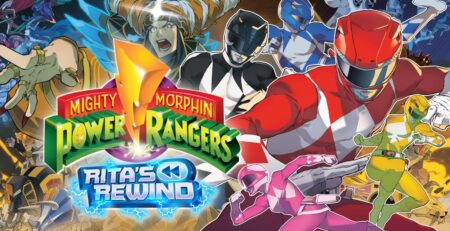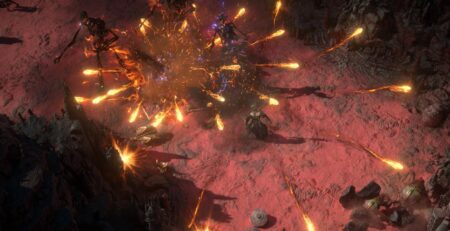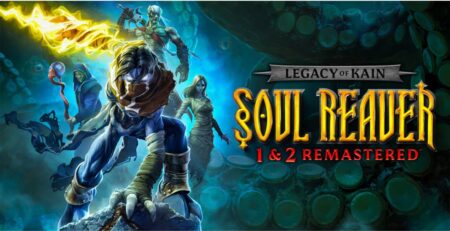Millennia is a brand new 4X strategy game developed by C Prompt Games and published by Paradox Interactive. It is C Prompt Games’ first attempt at a sprawling game that aims to take players through 10,000 years of history. It attempts to tweak the formula and deliver a new twist on the genre.
The gameplay loop of Millennia is straightforward. Choose a nation, build it up over a period of 10,000 years, and try to overcome other nations. The goal is to outlast everyone else and become the world’s premier nation. There are technologies to research, buildings to manufacture, and armies to raise. It is a familiar loop for anyone who has played a 4X game before.
Millennia is also a turn-based game. This allows players to take their time in making important decisions. This is important in a strategy game. Real-time strategy games are less forgiving than turn-based ones because there is always a ticking clock. By choosing to be a turn-based game, Millennia creates a more welcoming experience for new players. Players can take their time in Millennia to make sure they are making the best decisions. They also don’t have to constantly worry about what an enemy nation is doing, since enemies take their own turns as well. It just slows things down which makes the experience less hectic.
One major addition in Millennia that helps make it even easier for new players is the undo button. Sure, this could be used as a sort of save-scumming replacement, but in reality, it is going to be a massive addition for less experienced players. It allows players the chance to make mistakes. It is important to give new players a way to do some trial and error without completely ruining their game. More veteran players might avoid this, but it is a great addition for newcomers in a genre with a frequent high barrier to entry.
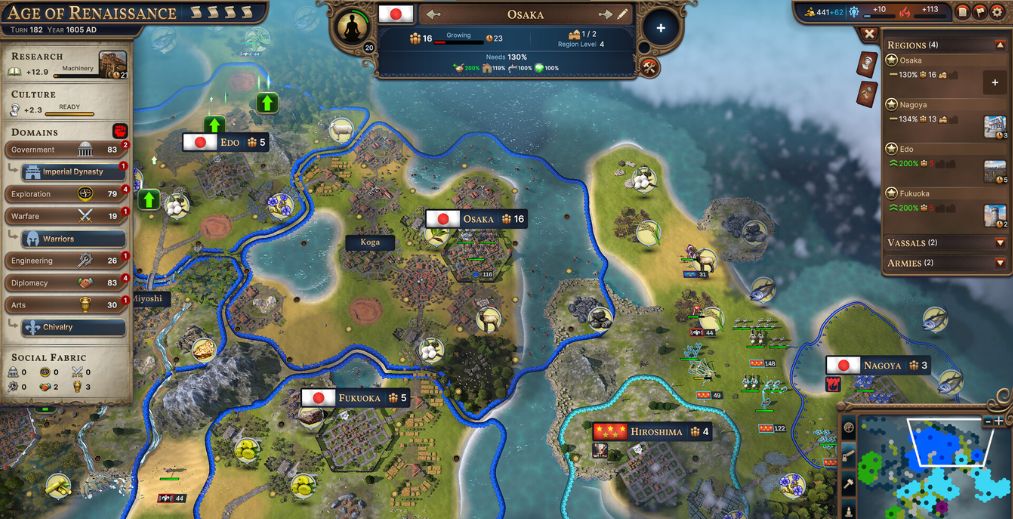
There are various ways to grow your nation in Millennia. Each city has a production chain used to either build new buildings or produce more soldiers. As the cities grow, they take over lands that produce certain resources once the right buildings are placed. This process happens naturally over time and the game, thankfully, reminds you when a city is not currently producing anything. The production menu itself, however, can be a bit unwieldy to find and chaotic to navigate.
Throughout the game, players earn experience in different domains such as government and engineering. These domains have selectable traits that improve a nation without having to spend resources. They are limited, however, and can change as players advance into a new age.
Ages in Millennia advance organically based on how players choose to play. Decisions you make such as what to research, build, or even attack help move the world forward. Crucially, once players reach a new age the rest of the world advances to the new age too. This means you can’t hyperfocus on advancing and hope that enemy nations will stay in the Stone Age. It helps keep the challenge up as the game progresses.
There are familiar ages like stone and iron, but there are more unique ones like the Age of Heroes. Each age is activated by meeting specific criteria. It is an extra layer of creativity that encourages branching playstyles. Millennia helpfully explains the criteria so players can target a specific age.
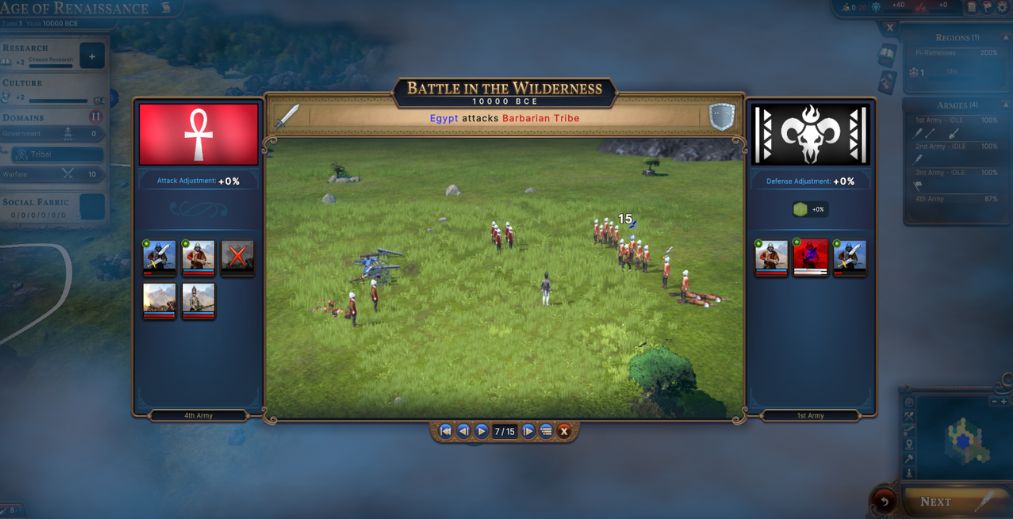
The other way to build up a nation is by conquering other nations. Troop production starts very limited but expands over time. Placing units on the same tile intuitively combines them into one army. This is vital for progression as battles get more complex. A pop-up video display replays the battles. This lets players see why an attack did or did not work.
This is important because it helps players understand what new units to build. Did your spear army fall flat at the gates of an enemy city? Try adding archers into the mix and see what happens. These replays struggle visually, though. They are on par with something straight out of 2006. It would have been nice to see some more graphic fidelity here.
Visuals are where Millennia struggles the most. It is going to naturally draw comparisons to the Civilization franchise, which is why it is disappointing that this game looks older than Civilization V, which came out in 2010. Unit models and city locations lack details and the world, while massive, could use much more detail too. Even the menus struggle. Screenshots in the information menu are blurry and often hard to read. This makes it difficult to go back and find the information you need.
The struggle with Millennia is that it doesn’t do anything dramatically new or flashy. That isn’t always a hindrance to enjoying it, especially with things like the easy-to-learn production chain and government expansion. Those familiar mechanics make the onboarding process much easier and more comfortable. Fighting in Millennia, however, could use more advancements to make it stand out from games released more than a decade ago.
Millennia is a perfectly adequate 4X strategy game that will be easy for players to pick up and play. It does not try to reinvent the wheel, for better and for worse. There is still plenty of fun to be had and countless hours to throw away diving into the rich history of Millennia.
Millennia releases on March 26th on PC.
Millennia
-
Rating - 7/107/10
TL;DR
Millennia is a perfectly adequate 4X strategy game that will be easy for players to pick up and play. It does not try to reinvent the wheel, for better or for worse.


